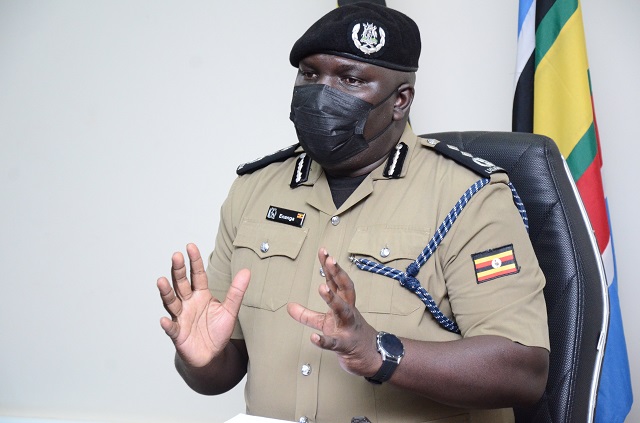
Kampala, Uganda | THE INDEPENDENT | All the 170 District/Division Police Commanders-DPCs who completed a three months refresher course last week have been sent on a 14-days leave as the police leadership works on their redeployment plan.
The former Deputy Inspector General of Police Lt Gen Paul Lokech had sent the commanders to Olilim Counter-Terrorism Police Training School in Katakwi district in May to equip them with new skills in observing human rights during their day-to-day operations, swifter response to emergencies and building community policing.
But before their departure, Lokech ordered them to hand over their offices to Officers In-charge of the various stations, who, from the time were to serve as acting DPCs. But Police Spokesperson Fred Enanga told Uganda Radio Network that the police leadership has resolved to first assess the performance of each of the DPCs during training in order to find where each one suits.
“It is not going to be automatic that everyone will go back to where he or she was. Their deployment is going to be based on their performance during training. This will be concluded by the end of two weeks,” Enanga said.
Some of the DPCs had already been replaced in the reshuffle issued out by Lokech two weeks before he died. The decision to retrain DPCs was concluded during a meeting with DPCs and President Yoweri Museveni at Entebbe State House in April. Museveni reportedly raised a number of issues that rotated around chaotic scenes registered during political party primaries and general elections.
The issues highlighted included lack of intelligence gathering techniques which saw some political groups successfully organize protests, failure to brief juniors on operation procedures which saw them shooting and injuring civilians during the election period while other DPCs were accused of hobnobbing with groups evicting people.
President Yoweri Museveni had earlier on ordered the Inspector General of Police Martin Okoth Ochola to draft new operation rules and ensure they are shared with each policeman. Ochola came up with 15 Standard Operating Procedures to address the gaps, and printed 50.000 copies of revised SOPs which were shared with every police officer.
Police commanders and their juniors were advised to ensure strict adherence to the SOPs in order to minimize operational mistakes and further enable police officers to enforce law and order, to the expectations of the public they serve.
*****
URN
 The Independent Uganda: You get the Truth we Pay the Price
The Independent Uganda: You get the Truth we Pay the Price



